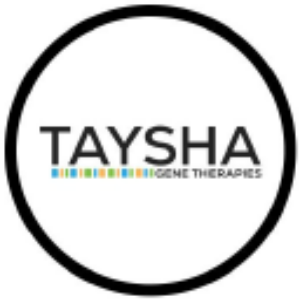Taysha Gene Therapies Announces Positive Safety Data from UT Southwestern-Sponsored Clinical Trial for the Treatment of CLN7 Batten Disease at 18th Annual WORLDSymposium
Taysha Gene Therapies (TSHA) announced promising clinical safety data for its gene therapy targeted at CLN7 Batten disease, presented at the 18th Annual WORLD Symposium. The trial achieved the highest intrathecal dose ever delivered in humans, demonstrating a favorable safety profile with no adverse immune responses or dorsal root ganglia inflammation. The trial, ongoing at UT Southwestern, aims to establish safety and tolerability, with potential implications for a serious, currently untreated disease affecting approximately 4,000 patients globally.
- First-ever gene therapy trial for CLN7 Batten disease showing favorable safety and tolerability.
- No adverse immune responses or evidence of dorsal root ganglion toxicity.
- Successful administration of the highest dose ever delivered for a gene therapy product.
- None.
Data demonstrated favorable safety and tolerability profile at 1.0x1015 total vg, the highest dose ever delivered intrathecally in humans
Stabilization in nerve conduction demonstrated absence of dorsal root ganglia inflammation
Taysha holds exclusive option to license CLN7 Batten disease program from UT Southwestern
“This is the first ever gene therapy trial for the treatment of CLN7 Batten disease, and we are encouraged that the first-generation construct was well tolerated by all patients treated at the highest dose ever delivered intrathecally in humans,” said
Safety data for the first-generation construct for the treatment of CLN7 Batten disease from the ongoing clinical trial following intrathecal administration further demonstrated that the first-generation construct was well-tolerated at multiple doses including 1.0x1015 total vg, which is the highest dose administered in humans ever for a gene therapy product. No adverse immune responses have been noted, including no evidence of dorsal root ganglion toxicity or brain inflammation across all subjects. Moreover, stabilization in sural nerve conduction supported the absence of dorsal root ganglia inflammation. The ongoing trial includes three patients dosed to date, with two patients treated at the highest dose of 1.0x1015. Complete blood counts revealed no signs of bone marrow suppression or clinically significant bone marrow reactivity, and cerebral spinal fluid (CSF) analysis revealed no signs of pleocytosis.
The clinical trial is a UTSW-sponsored, first-in-human, single center, open-label, dose escalation study enrolling patients at Children’s Health. The primary endpoint of the trial is safety and tolerability by incidence and severity of treatment related serious adverse events. Secondary efficacy endpoints include the Clinical Global Impression, neuropsychological, ataxia and motor function assessments and quality of life. Taysha holds the exclusive option to license the CLN7 Batten disease program from UT Southwestern.
CLN7 Batten disease is a rare, fatal, and rapidly progressive neurodegenerative disease that is a form of Batten disease. CLN7 is caused by autosomal recessive mutations in the MFSD8 gene that results in lysosomal dysfunction. Disease onset occurs around two to five years of age, with death often ensuing in young adolescence. Patients experience gradual nerve cell loss in certain parts of the brain and typically present with seizures, vision loss, speech impairment, and mental and motor regression. Currently, there are no approved therapies to treat CLN7 Batten disease, which impacts an estimated 4,000 patients globally.
About
Forward-Looking Statements
This press release contains forward-looking statements within the meaning of the Private Securities Litigation Reform Act of 1995. Words such as “anticipates,” “believes,” “expects,” “intends,” “projects,” and “future” or similar expressions are intended to identify forward-looking statements. Forward-looking statements include statements concerning the potential of our product candidates to positively impact quality of life and alter the course of disease in the patients we seek to treat, our research, development and regulatory plans for our product candidates, TSHA-120’s eligibility for accelerated approval in
View source version on businesswire.com: https://www.businesswire.com/news/home/20220209006082/en/
Company Contact:
SVP, Corporate Communications and Investor Relations
klee@tayshagtx.com
Media Contact:
carolyn.hawley@canalecomm.com
Source:
FAQ
What are the results of Taysha's clinical trial for CLN7 Batten disease?
What is the significance of the highest dose delivered in the trial?
How many patients were dosed in the clinical trial for CLN7 Batten disease?







